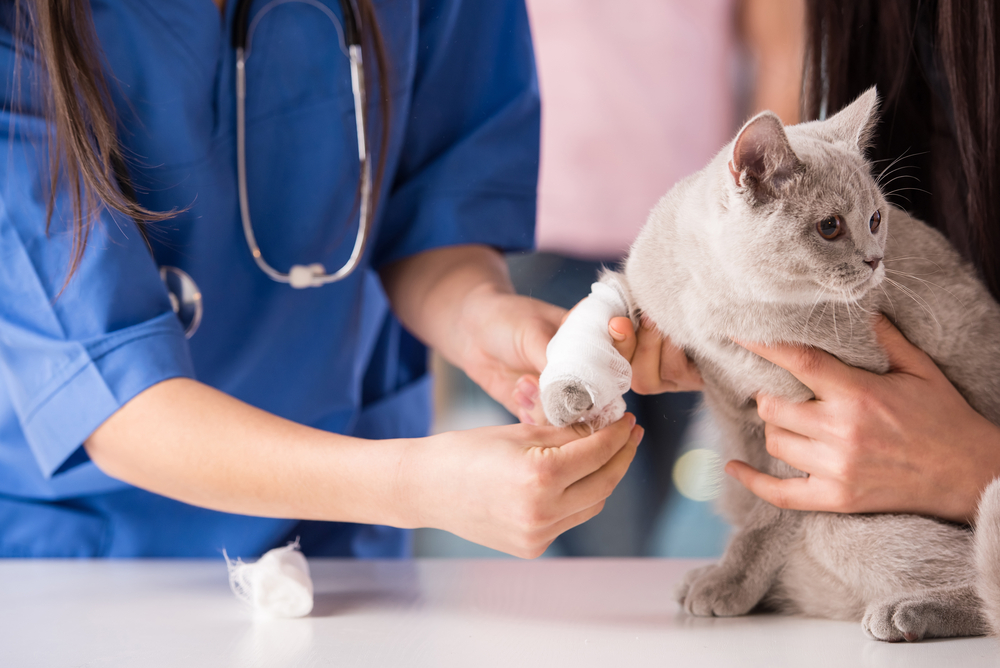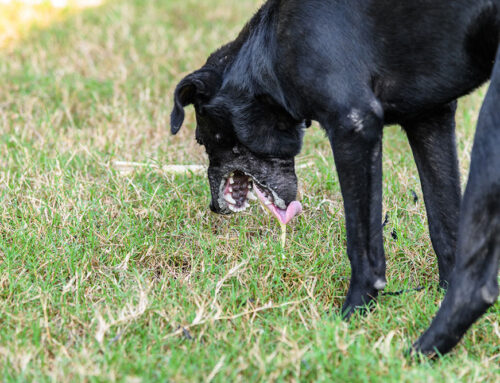Pet ownership comes with tremendous joy, laughter, and love—and also great responsibility. Your furry pal can’t communicate in words, but they can convey how they’re feeling through their behaviors and other health issue signs. As a loving pet owner, you must pay attention to all changes in your cat’s or dog’s demeanor or appearance, as these could indicate underlying health issues.
Our Peak Pet Urgent Care team understands pet health changes’ significance, and diagnosis and treatment urgency. A pet’s health status can change with age and conditions that arise gradually or suddenly. Stay on the lookout for these seven pet health signs you should never ignore.
Pet health sign #1: Appetite loss and fluctuations
A sudden appetite decrease or refusal to eat should be a red flag in both cats and dogs. While occasional food pickiness can be normal, persistent inappetence could signal various health problems such as dental issues, gastrointestinal (GI) disorders, or more serious diseases.
Pet health sign #2: Excessive thirst and urination
If the outdoor temperature is not hot and your pet is drinking water as if they’ve been walking through a desert, excessive thirst is unusual. Many conditions, including kidney disease, diabetes, and Cushing’s disease, can cause increased water intake accompanied by frequent urination. Monitor your pet’s water consumption and bathroom habits to help detect potential problems before they progress.
Pet health issue #3: Lethargy or disinterest in their activities
If your pet appears unusually lethargic, weak, or unwilling to engage in their usual activities, they are likely ill or in pain. While a pet may have an occasional lazy day, persistent lethargy may indicate underlying health issues such as infections, anemia, or heart problems.
Pet health issue #4: Changes in behavior or demeanor
Pets can sometimes have grumpy moments, just like us, but if your furry pal exhibits a significant demeanor change, they are likely having more than just a bad day. Pay attention to sudden or ongoing changes in your pet’s behavior, including increased aggression, fearfulness, hiding, which cats often do, or excessive vocalization. Behavioral changes can indicate pain, anxiety, or other health issues, and should be addressed promptly.
Pet health issue #5: Difficulty breathing or respiratory distress
Labored breathing, wheezing, coughing, or other respiratory distress signs require immediate attention from our Peak Pet Urgent Care team. Respiratory problems can be caused by infections, allergies, heart conditions, or foreign objects lodged in the airways, and prompt veterinary intervention is crucial.
Pet health issue #6: Visible lumps and bumps on or beneath the skin
While brushing and grooming your pet, make sure to check their skin and coat for any unusual lumps, bumps, or growths. Many times, growths are benign (i.e., not cancerous), but any new or rapidly growing masses should be evaluated by our veterinary team to rule out tumors or other serious conditions.
Pet health issue #7: Unexplained weight loss or gain
If your pet is not on a calorie-restrictive diet, noticeable weight loss, especially over a short period, should alert you to a problem. Weight changes can be symptomatic of various conditions, such as thyroid problems, diabetes, or GI disorders, and should be investigated by a veterinarian.
Comprehensive veterinary emergency list
Myriad signs usually precede serious diseases or other health conditions that require veterinary treatment. Veterinary emergency signs include:
- Severe bleeding or bleeding that does not stop after 5 minutes
- Choking or inability to breathe
- Straining to urinate or defecate
- Fall from a significant height
- Hit by a vehicle
- Abdominal bloat
- Eye injury
- Ingesting poisons or toxins
- Heatstroke
- Hypothermia
- Severe vomiting and/or diarrhea
- Bone fractures
- Animal bites
- Bleeding from any orifice
- Seizures
- Unconsciousness
These signs indicate your furry pal is experiencing an emergency. If your pet exhibits any of these signs, immediately bring them to an emergency veterinary hospital, or call our team.
When in doubt about a pet health concern, get professional advice

As a pet owner, you know that a veterinary emergency can occur in the blink of an eye. By staying vigilant and recognizing potential warning signs, you can catch health problems early and ensure your pet receives timely veterinary care. Through quick action, you can ultimately save your pet from perils that may otherwise threaten their life.
If you have concerns about your furry pal’s health, our Peak Pet Urgent Care team is here for all of your pet’s veterinary needs. Don’t hesitate to call our team.







Leave A Comment